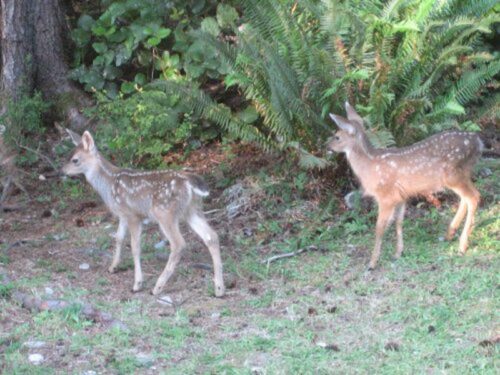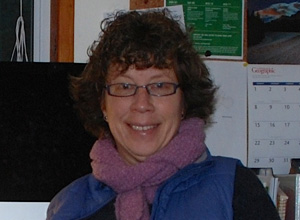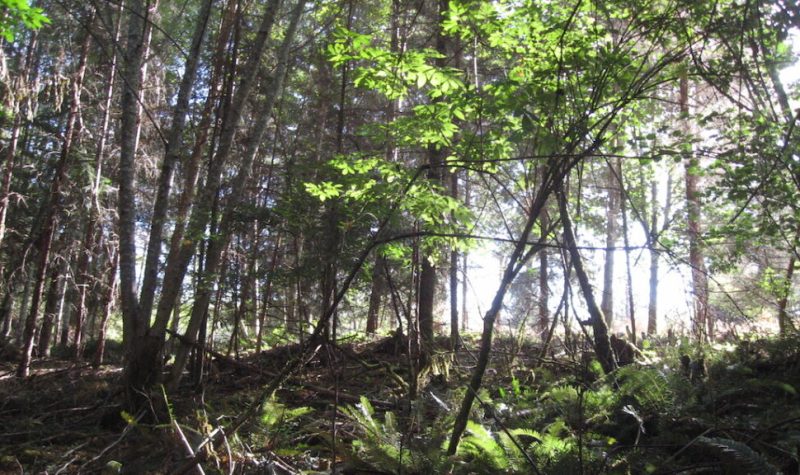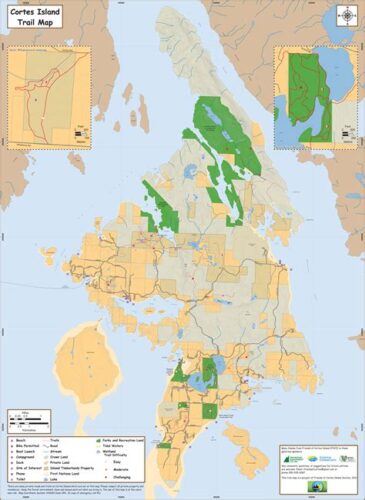By Max Thaysen, Local Journalism Initiative Reporter
On today's show, we're exploring the concept of Conservation Planning. What is it, what's involved and why is it important.

Fawns - Roy L Hales photo
Who's Who?
We'll hear from Helen Hall - Helen is the Executive Director of the Friends of Cortes Island Society (FOCI). Helen has had a long career in nature conservation over the pond, in Britain. She has been with FOCI for five years.
FOCI is a charitable society that exists to monitor, preserve and restore the health of local ecosystems and provide educational programs that foster a greater understanding of the natural environment.
(FYI: the author, Max, is a member of the Board of Director s)
We'll also hear from Liam Baron-Preston. Baron grew up on Cortes Island, exploring the wilds and now has returned from University with a pair of degrees to give depth to his passion and credence to his observations.

Helen Hall
What Is Conservation Planning?
I asked Helen, what is conservation planning?
She described how it is a study of land and water and life that exist in an area with the intention of determining which species or habitats might be at risk, underrepresented, or especially valuable so that they may be conserved, restored and connected with one- another.
A conservation plan would incorporate climate projections.
Conservation plans guide our efforts to protect the land from threats, and support its flourishing. And they also form a baseline so we can look back and compare the status of species and habitats today to what they were in the past.
To the extent possible, they also look back into the past to see what has influenced ecosystems in the past or what we've already lost.
Historically, indigenous human habitation also would have shaped ecosystems and species mixes. Incorporating the traditional ecological knowledge of indigenous peoples is critical to understanding and protecting land.
An Opportunity To Respond
Conservation planning is an opportunity to reflect on and respond to the rapacious colonialism of the past and that of the present. It is an opportunity to learn from and support indigenous voices. We acknowledge that, as a settler organization, we have a lot to learn to approach a conservation plan on unceded territory.
In recent times, logging has had a large impact on coastal british columbia. Taking stock of recent impacts will form a piece of the conservation-plan puzzle.
Helen suggested I track down Sabina Leader-Mense who is doing a summer project to groundtruth sensitive ecosystem maps that exist for Cortes. Ground truth is a term used in various fields to refer to information provided by direct observation as opposed to information provided by inference.
Sabina has been working on conservation and biodiversity for a long time. She is the Marine Stewardship coordinator for the Friends of Cortes Island Society.
I did manage to get in touch with Sabina by email and she recommended I speak with Liam Baron-Preston. Liam has been working with Sabina to initiate a biodiversity survey and 'sensitive ecosystem map' groundtruthing effort.
Liam joins us by phone to describe the projects, how growing up on Cortes inspired a passion for the natural world. He tells us that biodiversity is key to a resilient ecosystem. He also brought in the concept of biomass - the numbers of individuals in a population - and how this is also a key to resilience.
I did an interview with Carrie Saxifrage and Mark Lombard from the Cortes Community Forest Cooperative to hear about their conservation strategies. There was so much good stuff there that we'll have to save it for another episode.
Many thanks to Helen and Liam for sharing their work and passion.
Theme song provided by Cabled_Mess under Creative Commons 0 license ( https://freesound.org/people/cabled_mess/sounds/332583/ )



